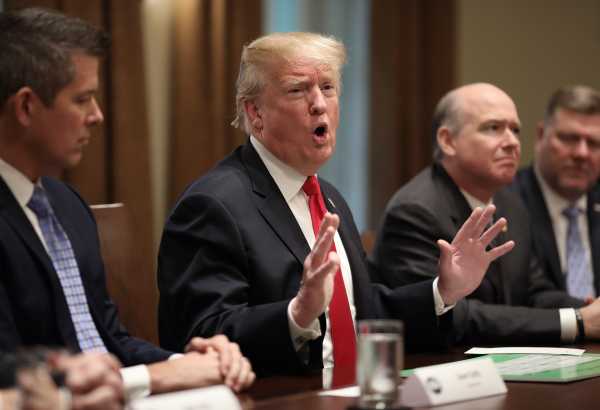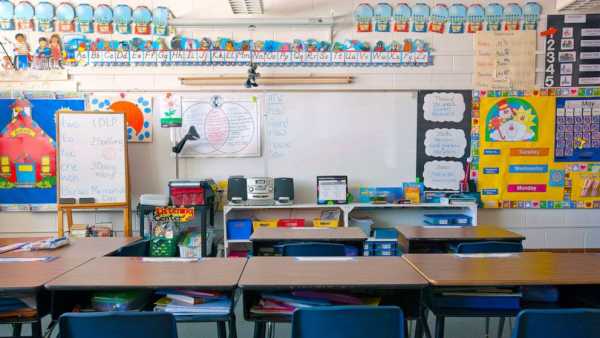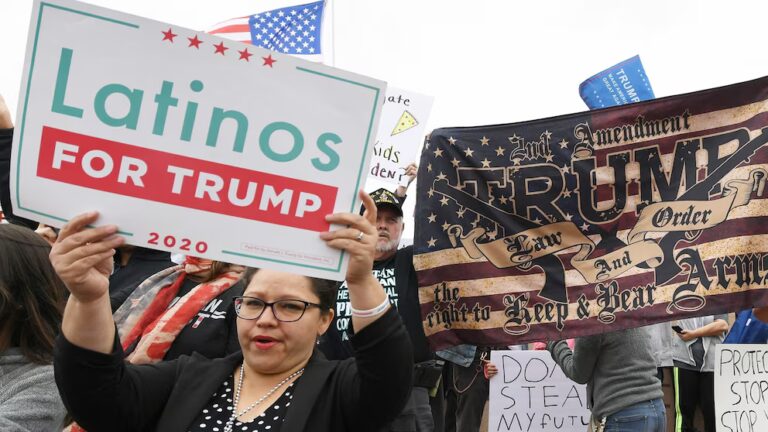
Either President Donald Trump hasn’t been to the grocery store in a while or he’s going to a pretty unconventional one where you need to show ID to go shopping — and can negotiate with employees about whether or not you pay.
In a meeting with Republican members of Congress on Thursday, Trump was asked about the ongoing partial government shutdown and Commerce Secretary Wilbur Ross’s comments earlier in the day that he doesn’t “quite really understand why” federal workers affected by the shutdown are going to food banks instead of taking out loans. Ross’s remarks were widely panned as stunningly out of touch.
The president appeared to try to clean up Ross’s comments, but in doing so, he revealed that he, too, is a little confused about how typical Americans live. He seemed to suggest people can just work out a side deal with the grocery store if they aren’t able to pay.
“Local people know who they are when they go for groceries and everything else. And I think what Wilbur was probably trying to say is that they will work along,” Trump said.
In other words, federal workers on furlough or working without pay because of the shutdown should just strike a deal with the store.
Trump also said banks are “working along” with clients on payments such as their mortgages.
“The folks collecting the interest and all of those things, they work along,” Trump said. “And that’s what happens in times like this. They know the people. They’ve been dealing with them for years. And they work along.”
It is true that some banks and credit unions have devised loans specifically for workers affected by the shutdown and are waiving charges such as overdraft fees and interest charges. But lenders are working with clients on a case-by-case basis, meaning not everyone is getting the same deal. And workers are being forced to take on debt that they wouldn’t have had to otherwise.
On the grocery store front, it’s not clear exactly what Trump thinks happens when people get to the front of the checkout line. Are they supposed to explain to the checker that they’re a federal government worker and then work out some sort of an agreement to pay later? Trump seems to think so — and also assumes that most people are shopping at local mom-and-pop stores, not giant chains. Not many Americans still know their grocer personally.
I reached out to chains including Kroger, Albertsons, and Whole Foods to see what sort of deals, if any, they had for workers affected by the shutdown. None, thus far, have returned the request for comment.
Walmart has committed $300,000 to support a trio of funds that help workers hurt by the shutdown, but its cashiers aren’t cutting deals to consumers. Kraft has opened a grocery store pop-up in Washington, DC, where federal workers can get macaroni and cheese, salad dressing, cheese, and condiments.
This isn’t the first time Trump has seemed confused about what’s going on in the grocery business. He raised eyebrows last summer when, at a Florida rally in defending voter ID laws, he said people need identification to buy groceries.
“You know, if you go out and you want to buy groceries, you need a picture on a card, you need ID,” Trump said. “You go out and you want to buy anything, you need ID and you need your picture.”
You do not need ID to buy food at a grocery store.
Trump might not be an everyman
Trump, a billionaire whose fortune can be attributed in large part to his father, ran for the White House on a populist message and positioned himself as a champion of the “forgotten men and women.”
“Remember, all of the people telling you that you can’t have the country you want are the same people telling you that I wouldn’t be standing here tonight,” Trump said when he accepted the Republican nomination to the presidency in 2016. “No longer can we rely on those elites in media and politics who will say anything to keep a rigged system in place.”
While Trump may try to speak to everyday Americans, he doesn’t know how they live — nor do a lot of the people around him. As the government shutdown has persisted, Trump and those in his administration have time and time again demonstrated they don’t understand the pain many Americans are feeling as a result of it, or at least won’t discuss it publicly.
National Economic Council Director Larry Kudlow on Thursday described federal workers forced to work without pay as “volunteering.” The president’s daughter-in-law, Lara Trump, said in an interview this week that the shutdown is “a little bit of pain, but it’s going to be for the future of our country.”
Earlier this month, the president said he can “relate” to workers impacted by the shutdown but “I’m sure the people that are on the receiving end will make adjustments. They always do.” He’s said many of the workers going unpaid agree with him, and as for those who don’t, he has argued that many of them are Democrats anyway.
Lack of empathy for everyday Americans doesn’t just show up in Trump’s comments; it also appears in his policies. He signed a tax cut bill in 2017 that reduced taxes for most Americans but overwhelmingly benefited corporations and the wealthy. Under his watch, the number of uninsured Americans has gone up by 7 million, and his administration is in search of new ways to cut Medicaid. The administration has also taken aim at cutting food stamps.
When Trump displays a lack of understanding of what goes on in a grocery store, it may seem comical. But it’s also an attitude that appears in the policies his administration enacts that affect people’s lives before, during, and after the shutdown.
Sourse: vox.com






